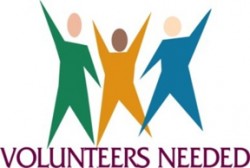Courtesy of AARP
 As we come and go in our daily routines, there’s always someone who could use our help. We don’t even think of it as ‘helping,’ we’re just doing the right thing. You’ve probably driven a neighbor to the grocery store or doctor appointment. Maybe you’ve helped shovel snow from someone’s driveway or sidewalk and didn’t ask for payment and didn’t accept payment. You were just doing a favor.
As we come and go in our daily routines, there’s always someone who could use our help. We don’t even think of it as ‘helping,’ we’re just doing the right thing. You’ve probably driven a neighbor to the grocery store or doctor appointment. Maybe you’ve helped shovel snow from someone’s driveway or sidewalk and didn’t ask for payment and didn’t accept payment. You were just doing a favor.
These are simple examples of providing community service. We do the same with family members – caring for loved ones who are ill; fixing a car so a family member won’t have to pay to have it done; cooking meals or buying groceries for a niece or uncle who’s short on cash; mowing the lawn, picking up a prescription or taking care of your grandchildren while their parents work.
Would you call that volunteering? Probably not, but volunteering, community service, giving your time to help others – it doesn’t matter what you call it – we all want to be helpful and do useful things that serve needs. We want to make life easier and show that we care.
But in many Latino cultures, we often look at helping others as a duty or responsibility, not as volunteering.
The world has changed a lot. Today, cities and large urban areas fill much of our landscape. And frequently, family members don’t live in the same house, the same neighborhood or even close by. In Latino communities, relatives may be in distant countries.
More than ever, especially in challenging economic times like right now, there are needs we can help meet. Most of us want to be involved and make a difference for our communities, our loved ones – and even for people in other nations.
Older men and women of all backgrounds are getting involved in service opportunities as local as civic organizations and as international as the Peace Corps. And frequently, older men and women stand in need of volunteer services. For example, nearly nine million people age 50 and older don’t know from day-to-day where their next meal is coming from. Volunteers help address senior hunger.
Some people like the idea of helping others, but they’re quick to say they don’t want to volunteer. But volunteering is nothing more than helping out. People willing to give their time – volunteers – have been the strong foundation of AARP since the organization began in 1958. Volunteers have been advocates for older people and their families by standing up for their rights on health and financial security, employment discrimination, fraud protection, utility increases, housing and so much more.
Through AARP’s Create the Good, and Compartir es Vivir, we are committed to providing volunteer opportunities for people 50+ to make a difference in their communities. Compartir es Vivir (www.CompartirEsVivir.org) is designed for Latinos 50+, friends and family members to discover more ways to have a positive impact on their communities.









